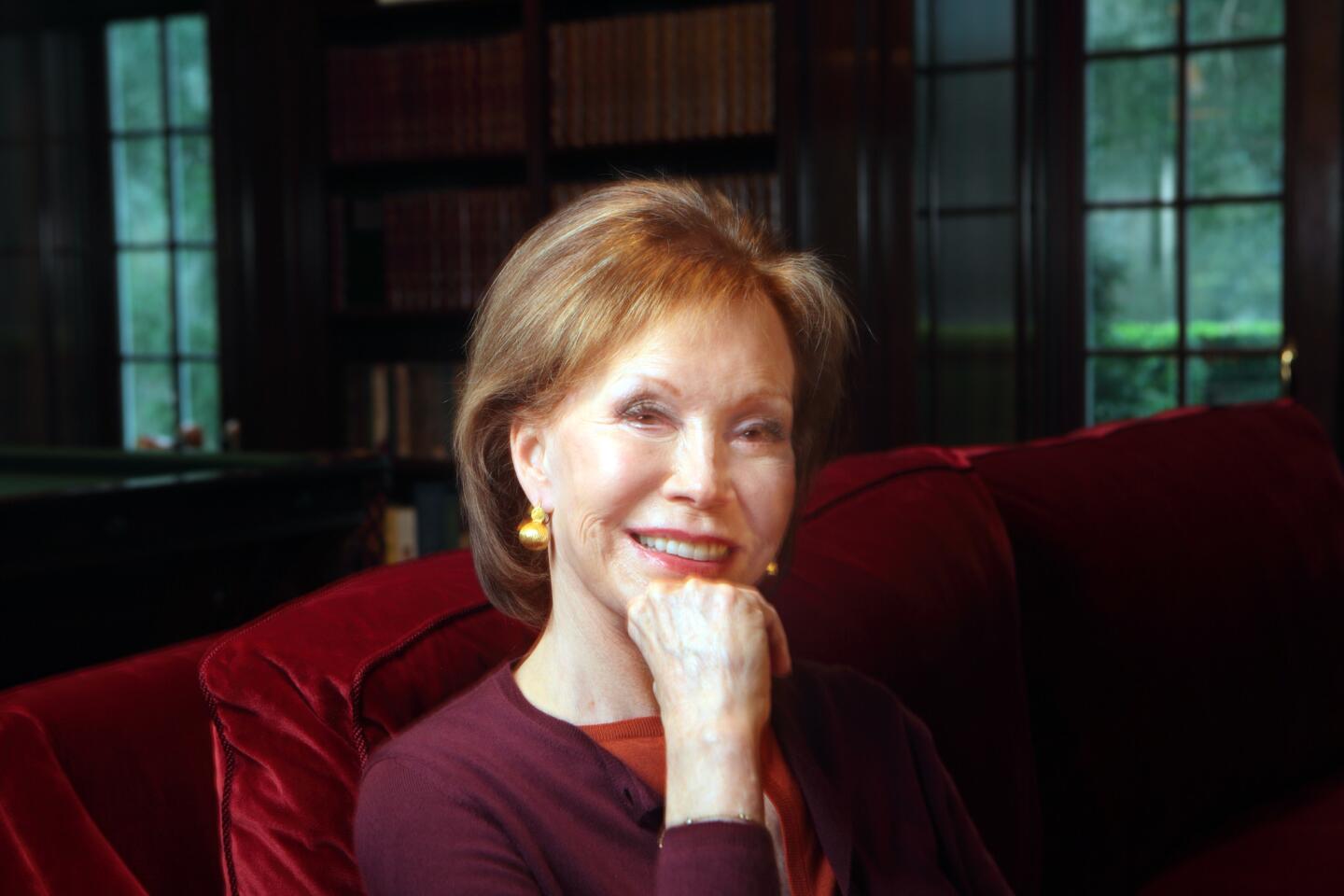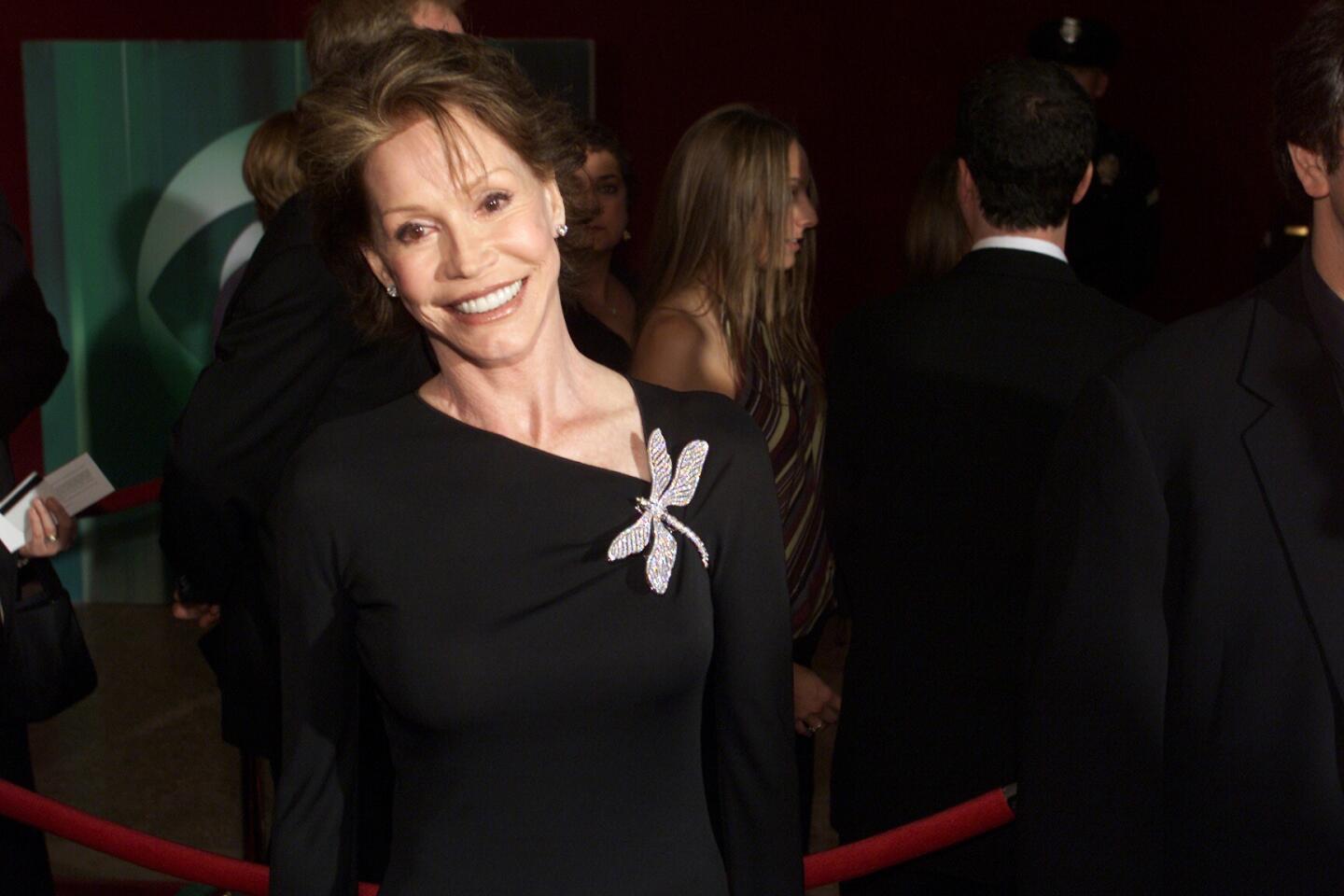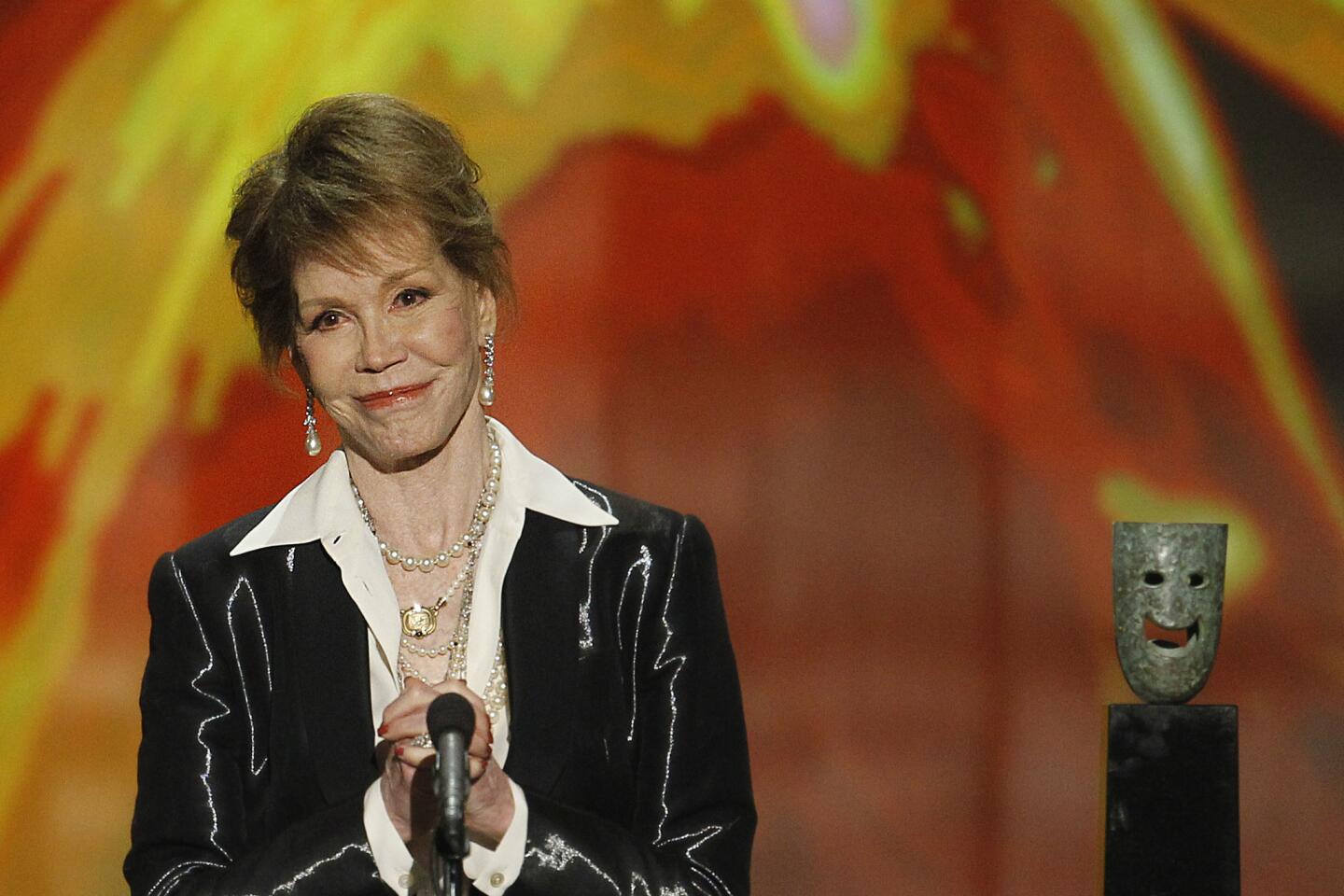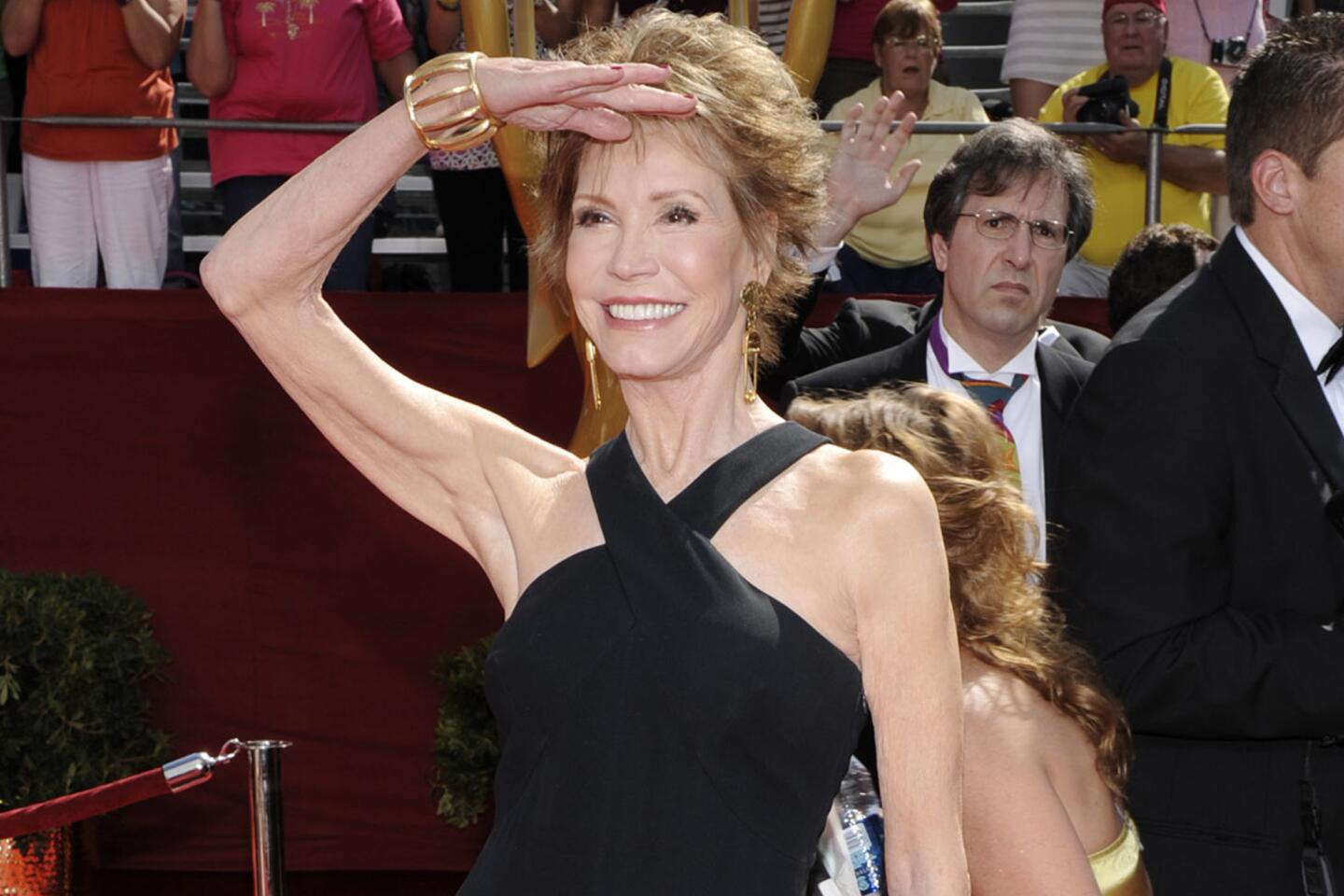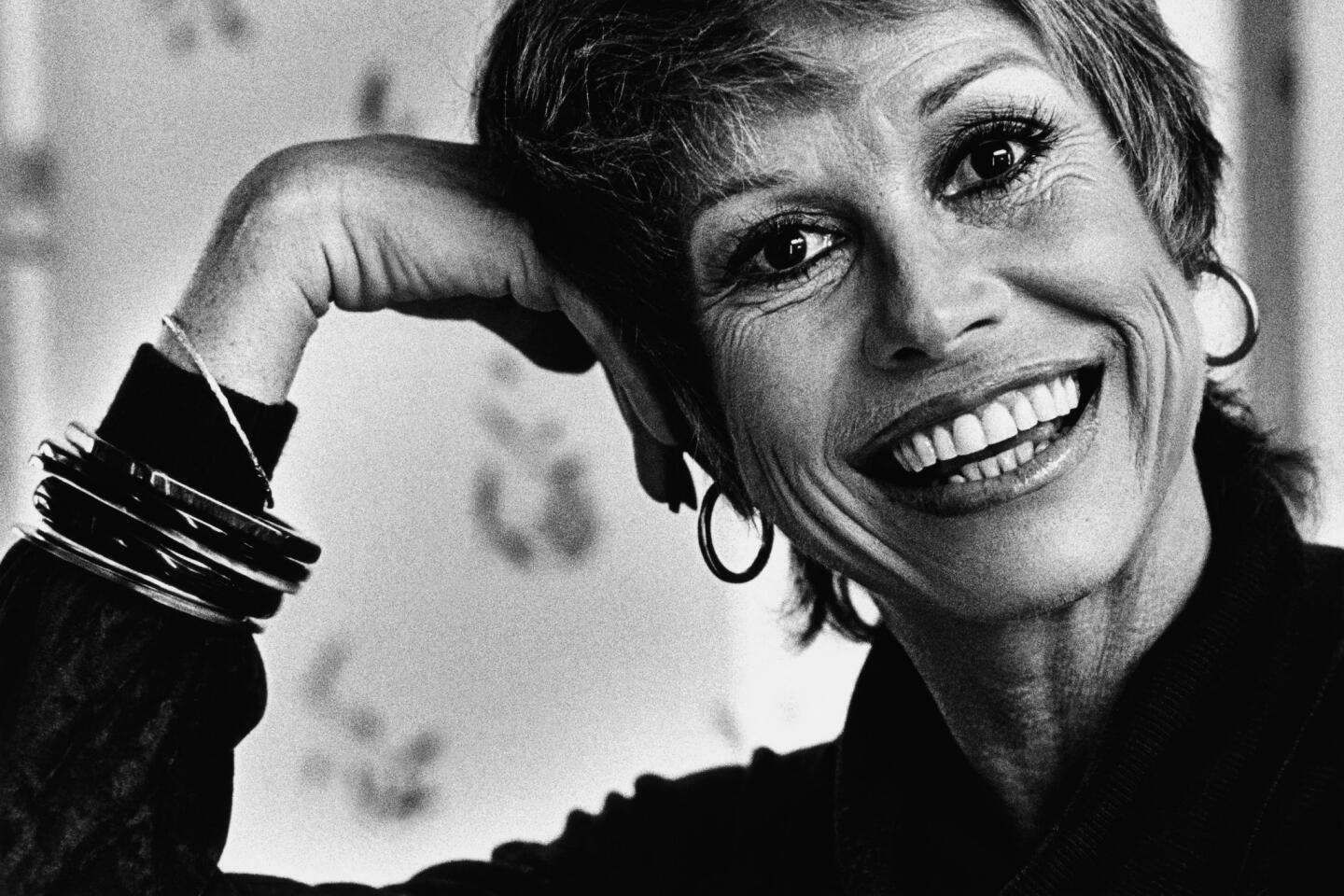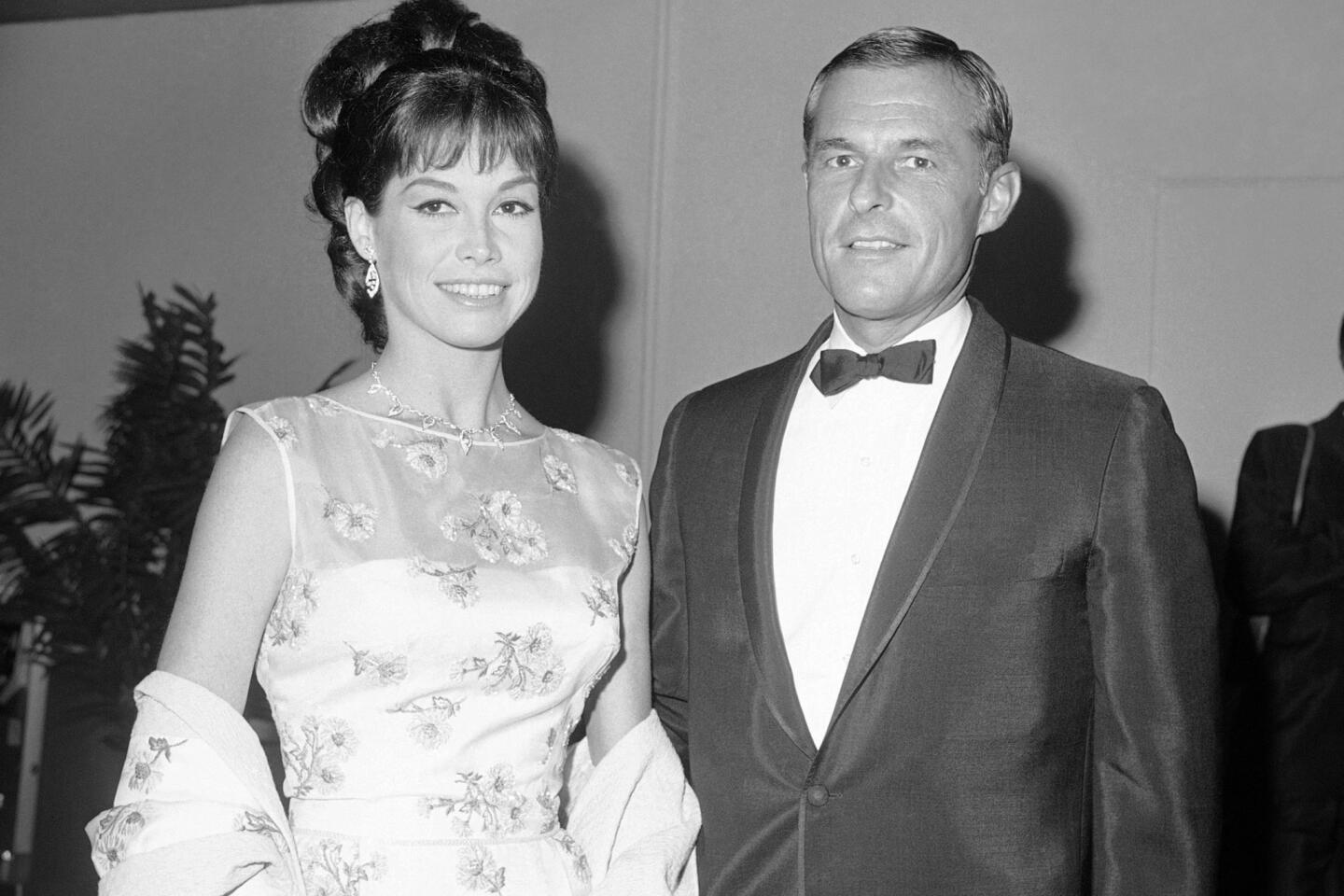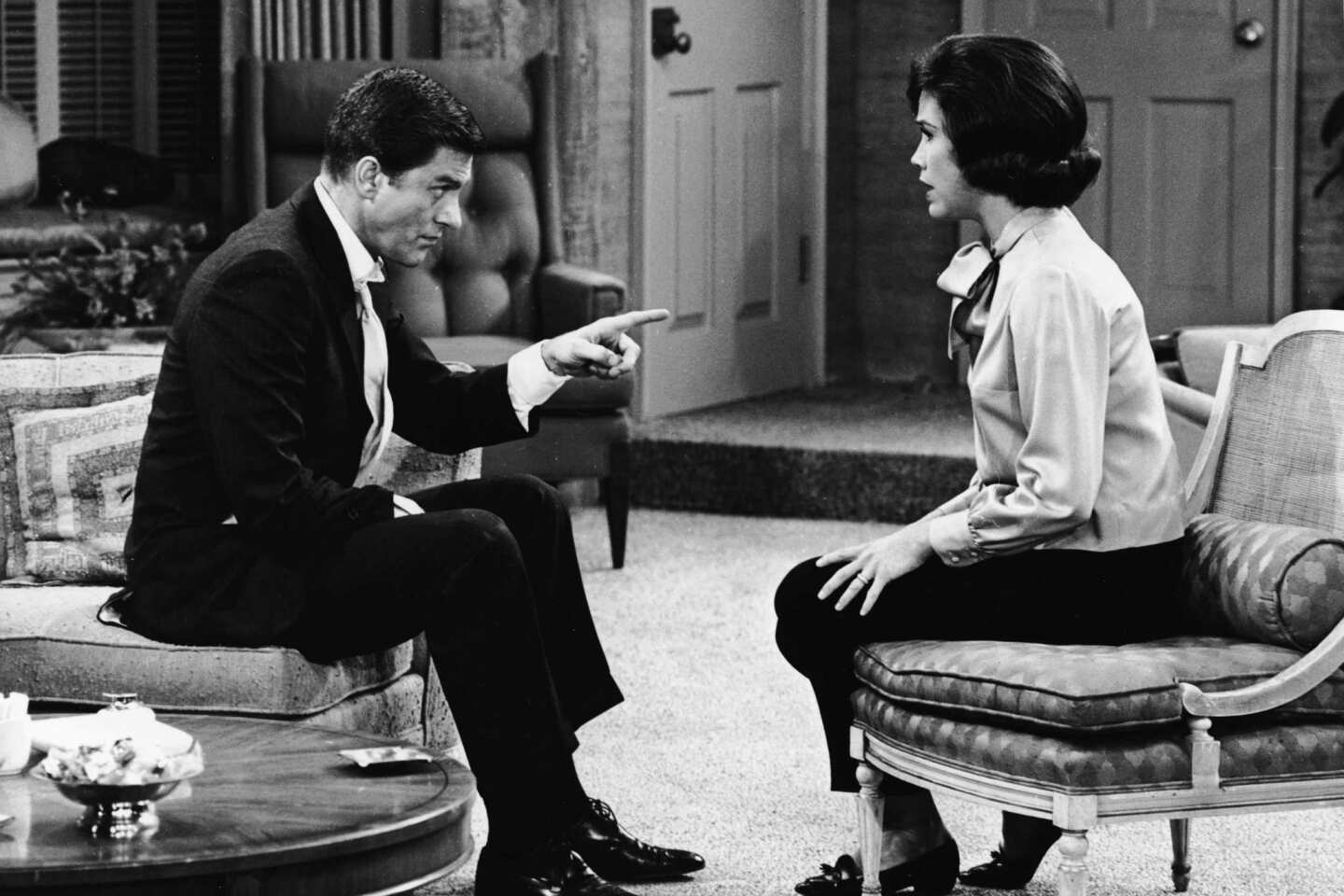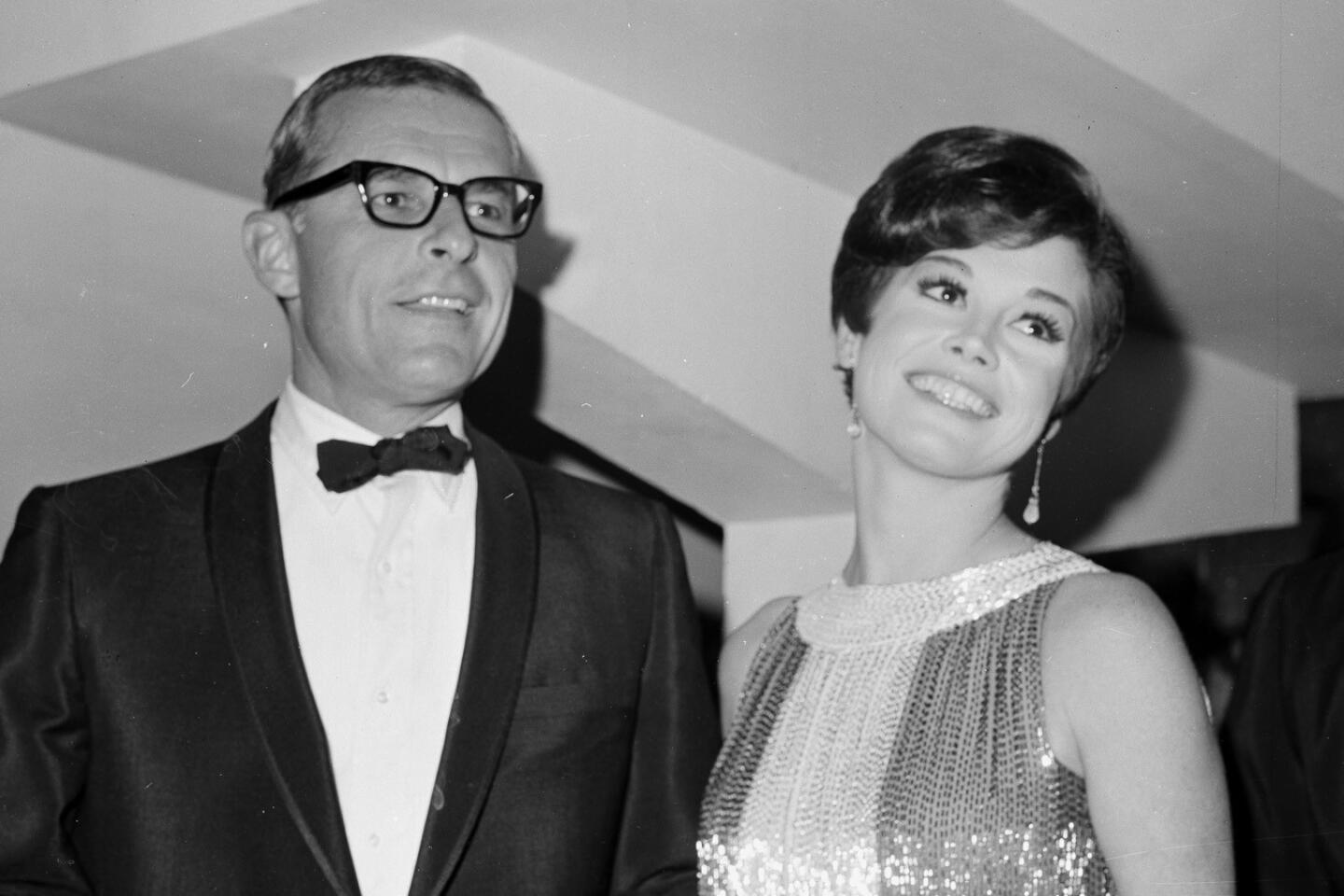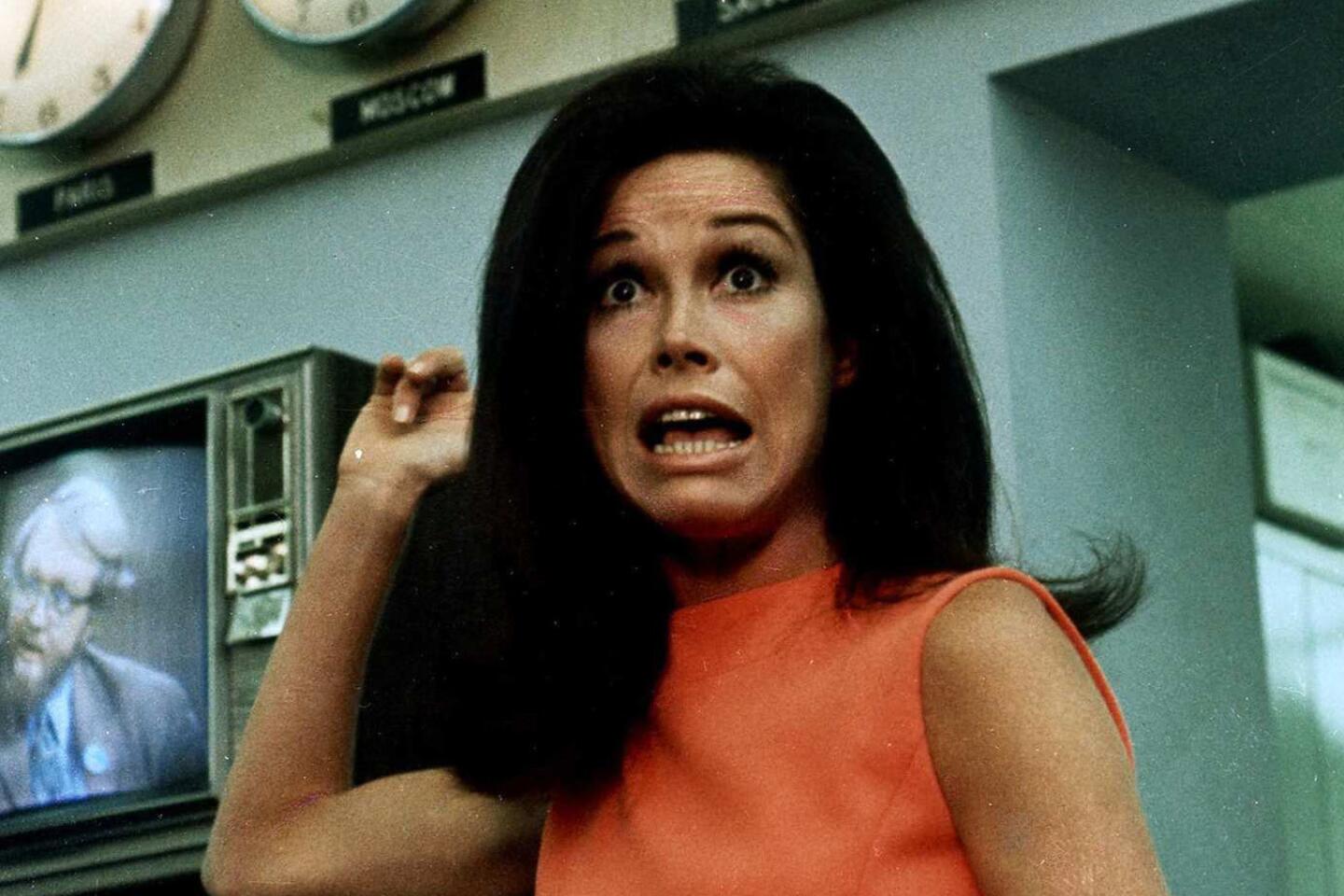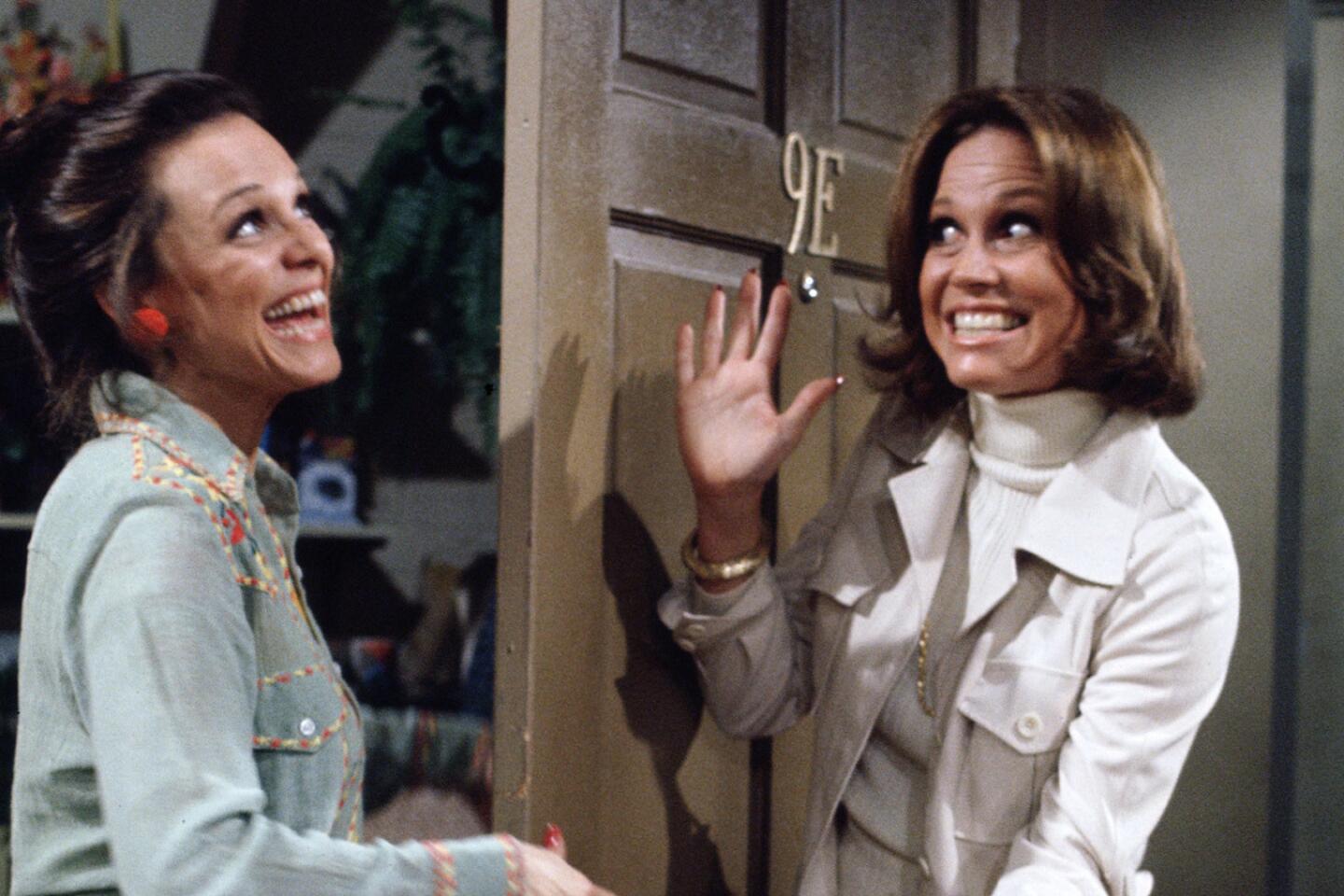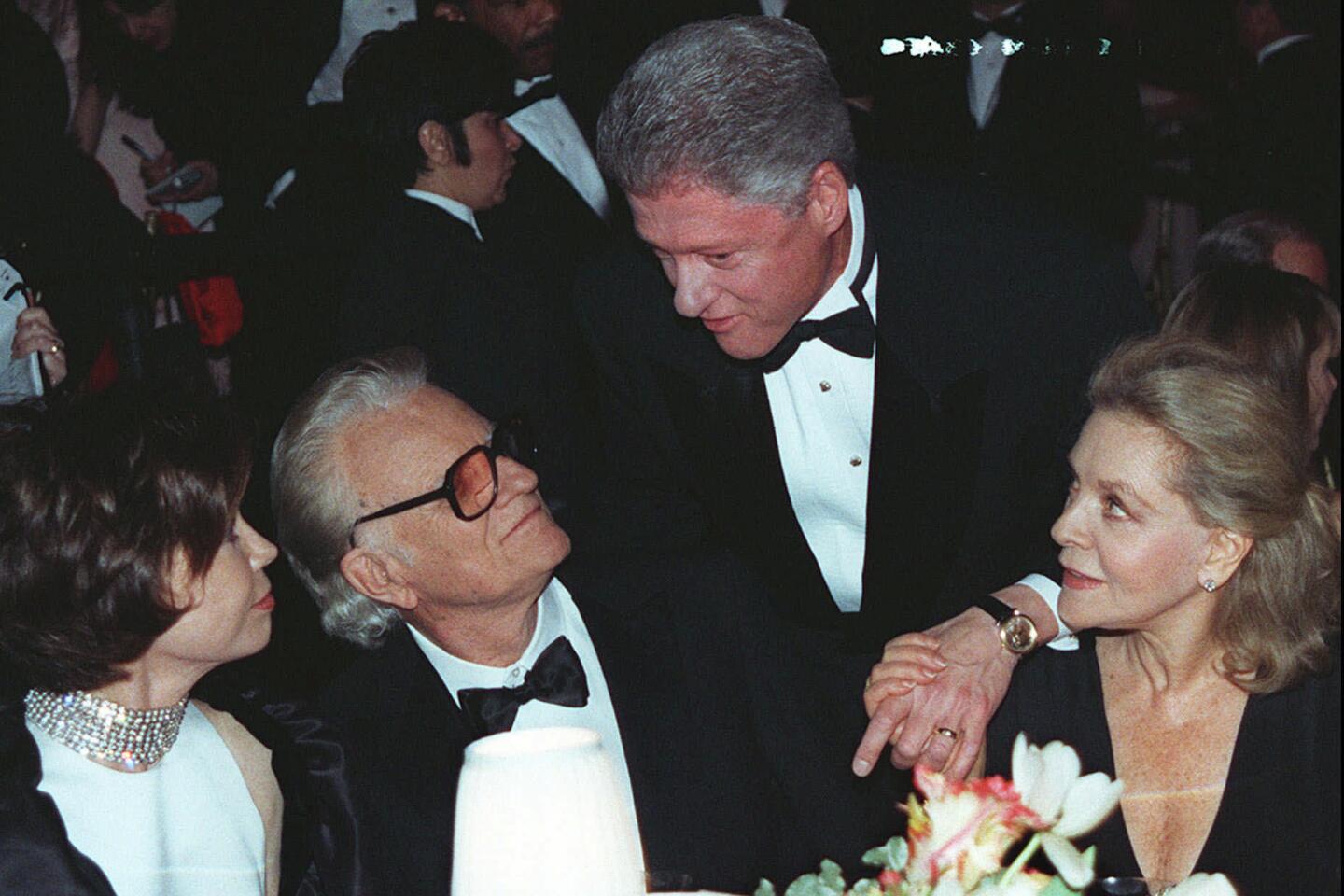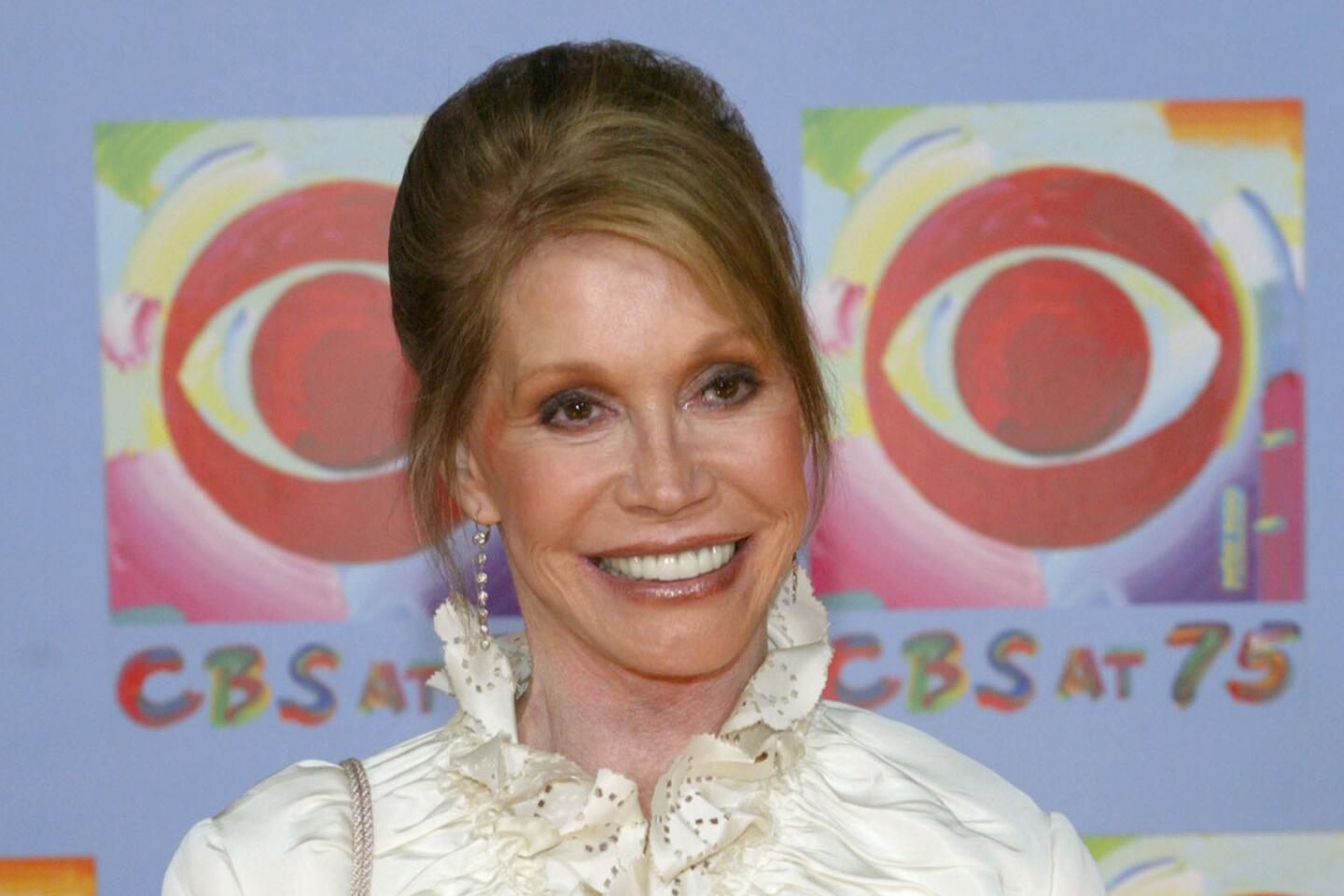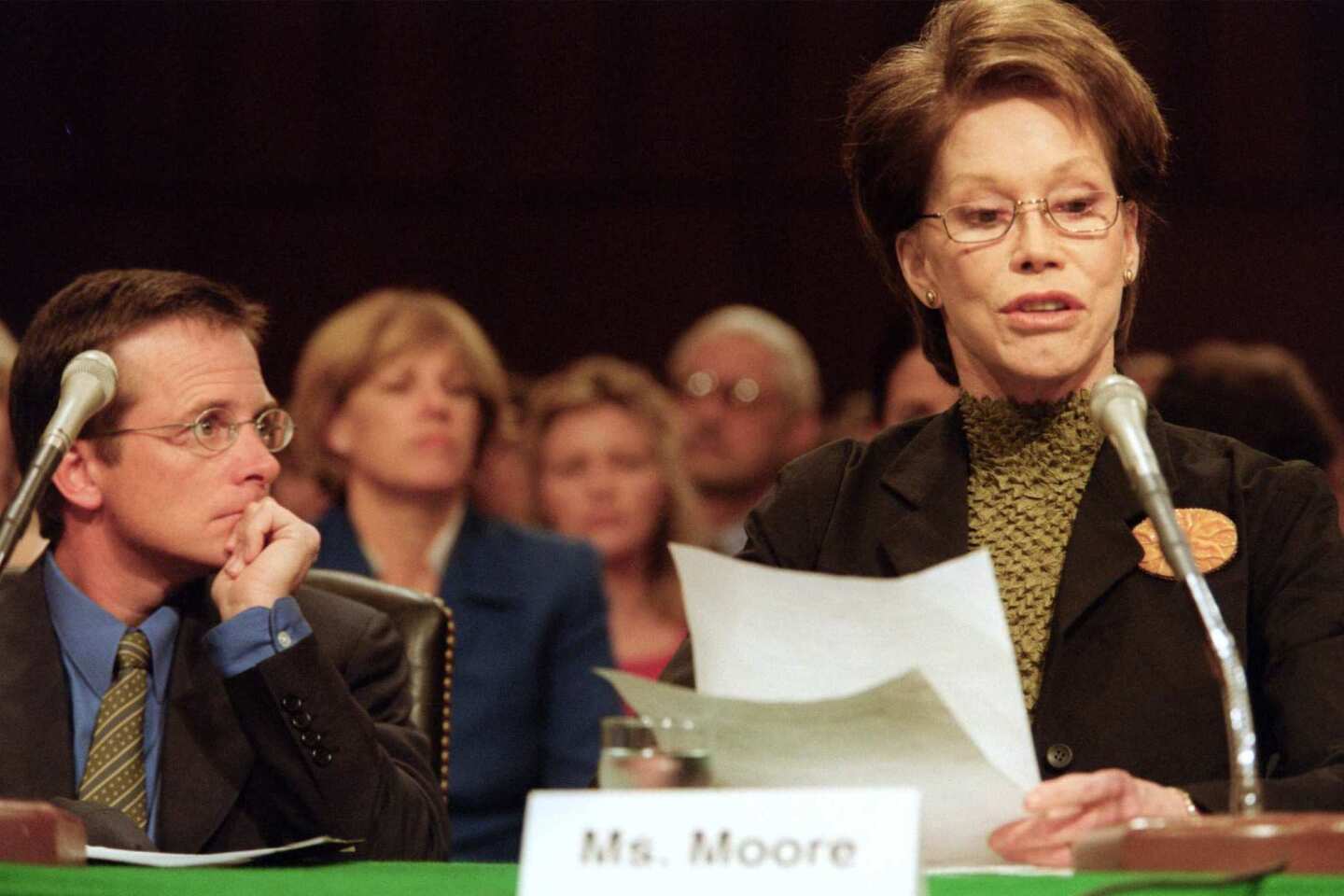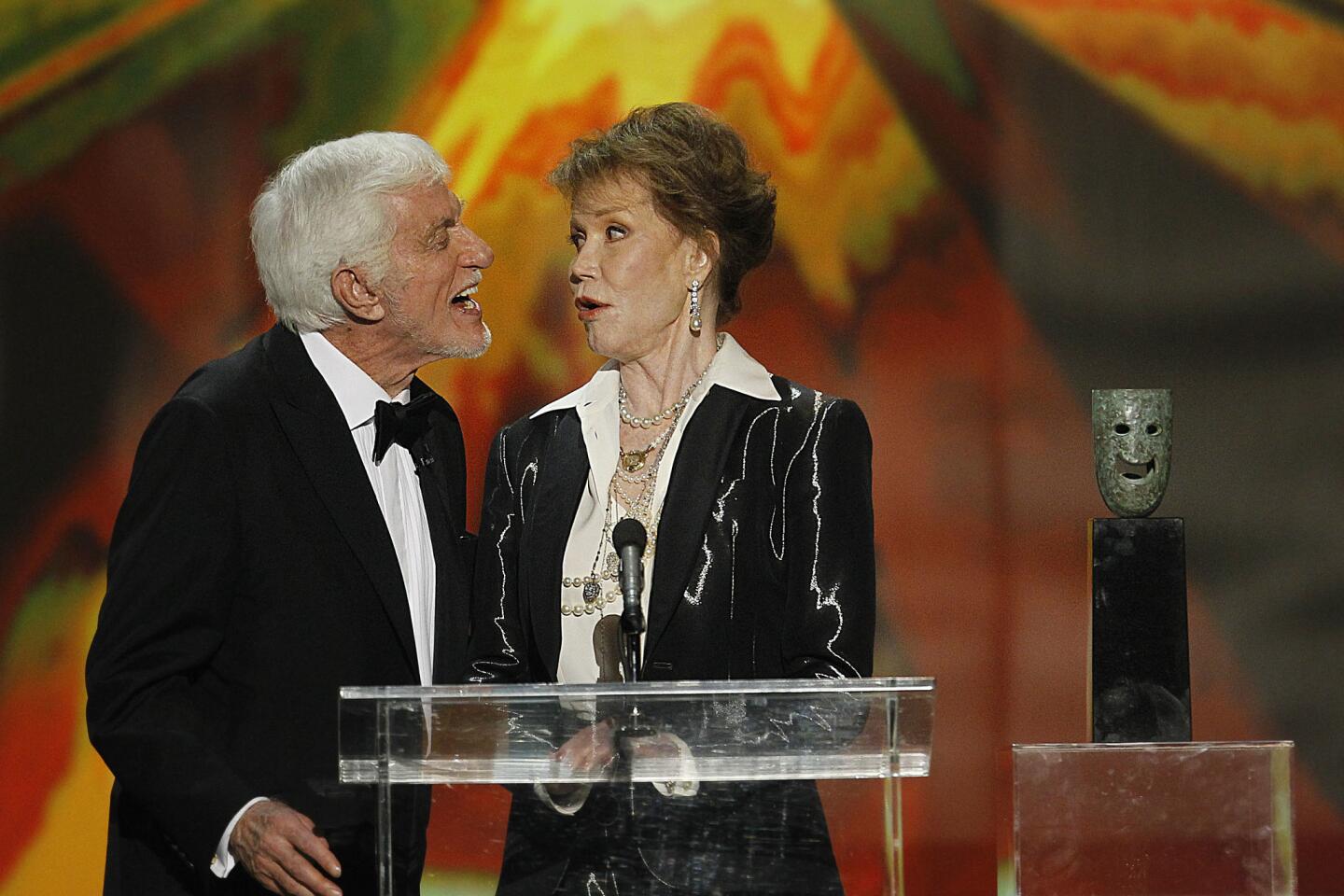The story of how ‘Love Is All Around’ became the theme to ‘The Mary Tyler Moore Show’
“Who can turn the world on with her smile?”
Anyone who had a television in the 1970s can easily answer that it was Mary Tyler Moore, who died Wednesday at age 80. Many could add that she’d also “take a nothing day, and suddenly make it all seem worthwhile.”
As delivered at the beginning of each episode of “The Mary Tyler Moore Show,” those lines are from the song “Love Is All Around,” written by singer-songwriter Sonny Curtis. Those words helped set the tone for the sitcom about a single woman making a go of it in Minneapolis.
Curtis has no doubt told the story of his theme many times, but reached on the phone at his home outside of Nashville, Tenn., he said he was a little wary of the renewed attention at this juncture. “I don’t want anyone to think that I’m using this as an opportunity,” he said.
He needn’t worry.
Over the course of his 60-plus-year career, Curtis earned accolades for his guitar playing with his friend Buddy Holly, as well as his skills as an early rock ’n’ roller armed with a Fender Stratoscaster. He’s also the writer of another American classic, “I Fought the Law,” which was made famous by the Bobby Fuller Four and, later, the Clash. (Spoiler alert: The law won.)
FULL COVERAGE: Mary Tyler Moore | 1936-2017 »
Curtis, 79, said he’d heard the news of Moore’s death Wednesday. He was holding grocery bags after a trip to the supermarket when a reporter called. Though he and Moore didn’t know each other well, he considered her a friend.
“I was being interviewed before I knew what was going on,” he said.
Curtis spoke with The Times on Thursday morning. What follows has been edited for length and clarity.
That was an awfully good day for me. I remember enjoying writing that song. I just sat on my couch and took my guitar in hand and went for it.
— Sonny Curtis
How did you come to write “Love Is All Around”?
It was a deal that happened all in one day. I had a very good friend who worked for the Williams-Price Agency, and they managed Mary Tyler Moore. He called me one morning in the summer of 1970 and asked me if I would be interested in writing a song for Mary Tyler Moore. He said they’re going to do a sitcom on her and they all need a theme song.
At his lunch break, he dropped off a four-page treatment that one of the writers or somebody had put together. It wasn’t a script. It was a treatment that didn’t have a lot of information. Like, “A young girl from the Midwest gets jilted and left at the altar” or something like that. “She’s in the big city of Minneapolis and gets a job at a news station and rents an apartment she has a hard time affording,” that sort of thing.
I wrote the song in about two hours and called him back and said, “Who do I sing this to?” He sent me to James L. Brooks — he and Allan Burns were the executive producers — who was over there on Ventura Boulevard. I don’t know if you ever saw “Gunsmoke,” where they have all those big Quonset hut-looking buildings? That’s where their offices were.
It was just you and him?
Yes, James L. Brooks took me to a huge room and brought two iron-back chairs. We sat down and he said, “We’re not quite at the stage of picking a theme song, but I’ll listen to what you have.” The only other thing in the room — it wasn’t as big as a gymnasium, but it was a big room — was a black telephone on the floor.
I sang it about 10 times, and before I left that afternoon, he had that room full of people.
— Sonny Curtis, on auditioning “Love Is All Around” for producer James L. Brooks
I got my guitar out and picked the song for him and he said, “Sing that again.” I sang it and he got on the phone and started having people come down. I sang it about 10 times, and before I left that afternoon, he had that room full of people. They were all lined up against the wall.
He ordered a cassette recorder and he said, “I want to take this to Minneapolis with me this weekend,” and I began to feel pretty confident at that time. Of course, you never feel real confident. People can change their minds.
Did you know of Moore’s work from “The Dick Van Dyke Show”?
Oh, I knew her work well. I had not met her at that point.
But it might be significant for you to know that the first season was different from the second season — the lyrics. The verse changed and the chorus stayed the same except for one line. The verse on the first show was, “How will you make it on your own?” After the first season, Allan Burns called me and said, “Sonny, we need a different set of lyrics, because she’s obviously made it.”
That’s interesting. Opening with “how will you make it?” adds doubt into the equation.
Yeah, it’s doubtful. And at the very end, when it says, “Love is all around, no need to waste it/ You can have the town, why don’t you take it,” on the first season it ends, ‘You might just make it after all.’ And for the second season we changed that to, ‘You’re gonna make it after all.’”
It’s much more hopeful.
Yeah, because she’s made it.
Did you watch the show?
I did watch the show, and after the show aired for the first time on Sept. 19, 1970, Allan Burns had a big party up at his house. Everybody was there, the whole cast and crew, and Louise — my wife — and I were invited, and that’s where I met Mary.
You not only wrote the song but also sang it for the show, right?
Yes. I sort of insisted on that. The executive producers weren’t really comfortable with that in the beginning. They did say at one time, “Well, we were kind of thinking of maybe getting Andy Williams to do it.”
Of course, Andy Williams had a big TV show, he was hotter than soap. I said, “If you can get Andy Williams, you got yourself a deal. But if it’s just going to be somebody off the street, I’d like for it to be me.” And they finally agreed.
Do you own the publishing rights to the song?
We don’t, actually. My friend who played drums for the Crickets, Jerry Allison, he and I published that, and about four years ago — we are kind of getting on up there, I’m 79 and he’s a year younger — he called and said, “Man this is getting out of control. Let’s sell this thing.” I said, “Man, Jerry, I can identify with that. We sold it to EMI in New York, and what’s kind of ironic is that I think they turned around and sold it about six months later .
Before you sold it, did you make money every time the show was broadcast?
Yes, it paid good performance royalties. All the stations that ran it, they had to pay a fee. Where we really made good money was through third-party usage. AT&T would pick it up and want to use it in an ad — we did very well with that. That song has been very good to me financially and otherwise. It’s been good for my career.
It must be an honor to have a piece of your work associated with something so culturally significant.
Absolutely. And that was at the beginning of the women’s liberation movement and Gloria Steinem and all those people were coming on pretty strong. I think they all identified with that show. It was sort of a cultural touchstone, and the song was a part of that.
The two songs for which you are most known are, thematically, polar opposites. One is about being young and free, but the other, “I Fought the Law,” is about being behind bars.
[Laughs] Yeah, well, when you’re writing songs the way that I do it, I just sit down with my guitar and see where my mind takes me. As I’ve told people a few times before when they say, “How did you write that?” I say, “You know, I think I dreamed it.” It’s hard for me to go back and say.
When I wrote “The Mary Tyler Moore Show” theme, I did have that little treatment to key into, and I must say that the fact that she had an apartment she couldn’t afford, was having a hard time getting by and making it, I really remember.
That was an awfully good day for me. I remember enjoying writing that song. I just sat on my couch and took my guitar in hand and went for it. It came to me pretty quickly. “How will you make it on your own? This world is awfully big. Girl, this time you’re all alone. “
That’s when she moved to Minneapolis, you know? “It’s time you started living and it’s time you let someone else do some giving. Love is all around,” you know?
For tips, records, snapshots and stories on Los Angeles music culture, follow Randall Roberts on Twitter and Instagram: @liledit. Email: randall.roberts@latimes.com.
ALSO
Mary Tyler Moore on film: In ‘Ordinary People,’ an extraordinary transformation
Mary Tyler Moore tribute specials to air on CBS and PBS
Mary Tyler Moore, beloved TV icon who symbolized the independent career woman, dies at 80
Mary Tyler Moore portrayed intelligent, independent characters who were generous of spirit
More to Read
The biggest entertainment stories
Get our big stories about Hollywood, film, television, music, arts, culture and more right in your inbox as soon as they publish.
You may occasionally receive promotional content from the Los Angeles Times.
